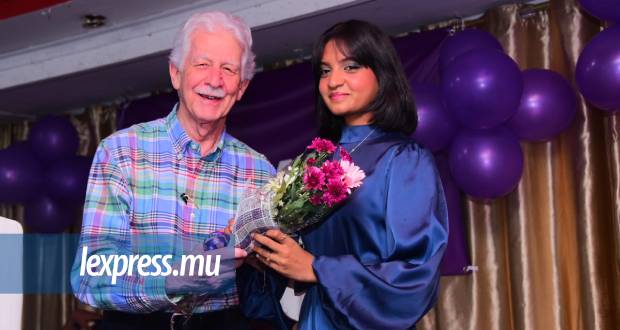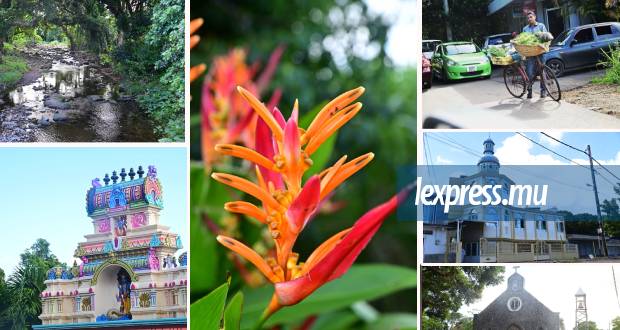Publicité
Basdeo Bissoondoyal, the fire within

Basdeo Bissoondoyal had come back from India in 1939 imbued with the spirit and fervour that had aroused a whole subcontinent, proud of its cultural past, but in search of a new identity, culturally and politically.
The reformist religious movement of the Arya Samaj, founded by Swami Dayanand and the fight to free India from foreign occupation led by Mahatma Gandhi were the two guiding principles that fired the spirit of Basdeo Bissoondoyal in his mission to make Hindus conscious of the values enshrined in their Scriptures, which would give them back their dignity.
Sone walo jaag chalo (?those who are asleep, wake up?) was one of the numerous songs that were arousing in the people the feeling that they were being trampled upon and that they had to stand up for their rights.
But his action was never a narrow one. René Noyau, a genuine Africanist, thinker and writer, mentioned under the pen name of Jean Erenne in Le procès Bissoondoyal that ?c?est le professeur qui écrivit l?histoire des esclaves persécutés à l?île Maurice, et ce dans une publication de l?UNESCO et c?est lui encore qui traduisit en hindi La Chaumiere Indienne et Paul et Virginie de Bernardin de St. Pierre.?
René Noyau used to come home and hold long conversations with Basdeo and Sookdeo over a cup of tea, particularly on Saturday afternoons.
Character
Rajman Radhakeesoon, who is still alive and who was a privileged witness to many conversations Basdeo had with others, recalls how during one of the discussions Guy Rozemont used to have with Basdeo, he mentioned the forthcoming mass meeting he was going to hold on the 1st of May. Basdeo then told him: ?This is a very important date. Why don?t you ask for it to be a public holiday?? Rozemont noted it down and later moved the historical motion to that effect in the (then) Legislative Assembly.
Basdeo, through small pamphlets, made Mauritians aware of the fights and struggles of de Plevitz, Rémy Ollier, Jacmin, Tabardaine, Labonte and others in defence of the rights of the common man.
?He was a living encyclopedia not only concerning Indian philosophy, Hinduism and related matters, but also English and French literature and the history of Mauritius.?
The three brothers (Soogrim, Basdeo and Sookdeo) and their young sister, having lost their parents at a very young age, were being looked after by their grandmother, their ?Dadi?. Although ?uneducated? in the modern sense, she gave them what modern education does not provide: character.
It is this strength of character that made them face whatever ordeal came in their way with equanimity. And ordeals there were when they wanted the Hindu community in particular to stand up and fight for its rights and dignity.
Even before Basdeo went to India in 1933 for University studies, the three brothers were very much involved in the revival of Hinduism and Indian culture. They were drawn to the reformist movement of the Arya Samaj and wanted to rid Hinduism of some of its malpractices, including the caste system.
When he came back in 1939 he started to arouse the Indian masses to make them aware of their rich cultural heritage. His movement the Jan Andolan (movement of the people) started at the grassroots level and in villages, however remote they were. His mission was to uplift the masses, and he had an aversion for the pseudo-intellectuals who called themselves the ?elite? and had their own interests at heart.
Soogrim had already died when he returned to Mauritius. It was agreed between Basdeo and Sookdeo that Basdeo would devote all his time and energy to the upliftment of the Hindus and Sookdeo would look after the needs of the whole family.
Powerful oratory
And this at a time when, with his MA from Calcutta University, Basdeo would have landed a well remunerated job and live comfortably for the rest of his life. But he had witnessed, whilst in India, how very learned persons had given up remunerative jobs to join the struggle for emancipation and independence spearheaded by Mahatma Gandhi, and decided that he had to follow the same path for the benefit of his fellow citizens.
He lived very simply without even bothering to ask for new clothes or shoes when these were worn out and ate whatever was brought to him. The evening meal was the occasion for Basdeo and Sookdeo ? when neither of them was in jail ? to discuss about important matters and to finalize strategies for the future.
It was not easy for Sookdeo either. He had resigned from his job as a primary school teacher to take up the struggle on the political front. He had to look after the welfare of the family, which, at the peak, consisted of 15 members. His only income was private tuition which was free for a large number of students, and he was even deprived of that when he went to jail.
He wanted to unite all the Hindus, whether they were Arya Samajists or Sanatanists, and whether they were Biharis or Marathis, Tamils or Telugus in this crusade. The fact that he used the name of Gandhi and that Muslims were also attending his discourses was used by the British authorities as argument that he was motivating the masses politically and was not just a Hindu missionary.
The 1943 Maha Yaj (?Great ceremony?) attracted 60,000 people to Port Louis even when the authorities had cancelled all the trains ? the only means of mass transport ? and had discouraged people from attending. They came from far away villages on foot and on bicycle to show their strength and their determination. His powerful oratory galvanized the people and made them banish the words ?inferior? and ?fear? from their vocabulary. 2000 ?Sewa Samitis? (the British authorities would call them a para-military force) kept order and discipline during the procession and the gathering without interference from the police or the army.
Pandit Permal Soobrayen, an erudite in Tamil, who was also involved in the movement, paid a vibrant homage to Basdeo in a poem in Tamil.
Boycott
But the gathering of 60,000 would have been a fiasco without a loudspeaker system, a rarity in those days. The British put pressure on Dawood Patel, the only person to have a loudspeaker system, not to provide the equipment. But Dawood Patel had given his word and stuck to it, whatever be the consequences.
The British became petrified and sent him to jail to break his determination. But he carried on his struggle in jail and went on a hunger strike to protest against the lack of amenities and proper Hindu food. When this became known outside, the people were very much concerned and stopped working in the fields. This prompted Governor Mackenzie-Kennedy to say in the Council of Government :
?When I see the fields unweeded,
in some places the cane uncut,
when I hear of men sitting down
for a whole day and doing no work
because some convicted person is
ENJOYING a hunger strike in jail?
My patience is wearing thin ??
It should be recognized that he had an army of followers who were prepared for any sacrifice without expecting anything in return. On the contrary they were discriminated against when they applied for Government jobs armed with all the required qualifications.
It is not well known that the first demonstration against the system of apartheid in South Africa was organized by Sookdeo in 1946, and this earned him his first imprisonment.
It is again to uphold the dignity of the Indians that Basdeo and Sookdeo organized the boycott of the most popular event of the horse-racing season, derogatorically called ?Les courses Malbar?. The boycott was a resounding success and a lesson in dignity, and ?Les courses Malbar? disappeared from the horse-racing calendar.
This was in 1947, one year before the first major step towards political empowerment was to be taken. Basdeo again toured the island to carry out a campaign to make adults of voting age learn how to write their names in Hindi. To be able to write one?s name in Hindi or another Indian language currently spoken in Mauritius entitled somebody to vote at the 1948 General Elections, which produced a majority of elected representatives of Indian origin.
After this was achieved, Basdeo continued to write extensively. He wrote in Hindi, English and French with equal ease and even in Sanskrit, and wrote a brief résumé of the Bhagavad Gita in Creole. He has been the most prolific writer in Mauritius, writing books published in India, England and France, contributing articles in prestigious journals and thousands of pamphlets to further the aims of Jan Andolan. He was a living encyclopedia not only concerning Indian philosophy, Hinduism and related matters, but also English and French literature and the history of Mauritius.
Malcolm de Chazal enjoyed discussing philosophy, metaphysics and literature with him, and had contributed a couple of articles in Zamana, the mouthpiece of the Jan Andolan. I once witnessed Malcolm de Chazal take his leave, but came back after only a few steps to tell Basdeo: ?Nous sommes les deux plus grands bougres de Maurice, vous savez? and left without waiting for any acknowledgement.
Freedom from fear
Somduth Buckhory and Basdeo very often used to enjoy long conversations and discussions in Hindi. Buckhory had pointed out that, in some way or other, it was Basdeo who brought Hindi to every inhabitant of Mauritius.
Abhimanyu Unnuth recalled how, when he passed his examination in Hindi conducted by Basdeo, he returned home absolutely delighted. He has always felt that that moment when he had ? for his exam ? to stand before the microphone and make a speech was for him the beginning of a life of freedom from fear.
Abdul Wahab Foondun, a very close friend and associate, was also at ease in English, French, Hindi and Urdu. He wrote a book in Urdu on the three brothers and used Basdeo Bissoondoyal?s Hindi translation of Paul et Virginie to produce an Urdu version.
It is not very well known that Dr Maurice Curé, who had called Sookdeo ?l?homme au grand coeur? had written his memoirs in Zamana.
In line with his strength of character Basdeo did not fail to deliver a scheduled sermon on the day he received news of his son?s death in England. To be true to himself, he did not accept the proposal of Harish Boodhoo, Deputy Prime Minister in 1982, that he becomes the first President of Mauritius.
He lived simply, and died simply surrounded by books, his greatest treasure, on 23rd June 1991. The Esplanade Prof Basdeo Bissoondoyal in Port Louis was named after him by Sir Aneerood Jugnauth and his statue at the Esplanade was put up by Ramnath Jeetah with the active support of Paul Bérenger.
Surendra BISSOONDOYAL
Rebel in his own right
In his book, Life in Greater India, Basdeo Bissoondoyal writes that in his youthful days, in the 1920s, he was fond of doing things differently with an innovative mind. He would pick up bicycle parts, for example, and come up with a new creation of his. In the early 1940s, when politics became a matter of interest, everyone rushing into made use of the traditional metaphor and clichés to make feelings run high. Not Professor Basdeo Bissoondoyal though. His innovative mind was still vibrant and serving him handsomely. This time it put him on a route quite distinct from the one chosen by others. That route was to try to reach out the people by sermons and imparting basic education. Preaching Vedic scriptures that he mastered so well and promoting Indian cultures, which had gone neglected for years, these activities he undertook with a missionary zeal.
The elder brother of the well-known and flamboyant Sookdeo, Basdeo Bissoondoyal shrugged off mainstream politics. The preacher of sermons was so forceful in his approach that the British administration took fright. A sizeable chunk of the Indian masses began rallying to his cause. The colonial government could not but harbour the view that he was getting the support of subversive elements from outside. Indeed, Basdeo Bissoondoyal operated like an ?Ayatollah?, like a religious and spiritual leader. His religious and social activities gave the Indian community a wake up call. One of the consequences of his activities was that the Conservative elements witnessed a reversal of fortune when they were swept away with the general election of 1948 and a new breed of politicians mainly from the Indian community started occupying the scene.
Back to Mauritius in 1939 after six years of university studies in India, imbibed by Gandhian principles and inspired by Indian stalwarts like Sadhu Vaswani, Lajpat Rai and Subhas Chandra Bose, Basdeo Bissoondoyal lost no time in taking up the cudgel to improve the lot of the Indian community. His sermons drew large crowds. Always clad in ?dhoti? and kurta, he talked persuasively in Hindi and English, it is said. He would dwell on episodes from the Vedas, the Ramayana and Bhagavad Gita. Not only Hindus but Muslims also came to listen to him. The government was at once informed by his detractors that his sermons were laced with political overtone. How could Muslims attend Hindu religious prayer meetings ? The authorities believed there was ruse in the strategy of the Professor. They now insisted that such meetings be henceforth authorized by the police. But Basdeo Bissoondoyal felt that the decision was discriminatory towards him as none of the other communities when holding their religious gatherings were required to obtain permission. He did not allow himself to be cowed down by the threats of arrest or imprisonment and went about holding his meetings. The Police Territorial Force used to be placed on standby for tackling any emergency. For defying the authorities, Bissoondoyal was imprisoned four times. In what came to be known as ?Le procès Bissoondoyal?, activities in Port Louis on the day of his trial became feverish with large crowds gathering in the vicinity of the Supreme court to hear the verdict.
One of biggest events in the Bissoondoyal?s movement was to occur on 12 December 1943 when the Maha Yaja took place in Port-Louis with volunteers wearing khaki shorts and carrying long sticks. Bissoondoyal spread his message in fiery language, urging his audience to fight for their rightful place in the sun.
Anquetil?s intervention
Indeed, the Maha Yaja was considered an effective instrument for the revival of Indian cultures and triggered a sense of pride in the Indian community, who felt that they had regained a lost dignity. Hindu religious festivals started to be celebrated with much devotion and without fear.
The awakening of the Indian community in general was seen in bad taste by the Governor, Sir Donald Mackenzie Kennedy who feared a social upheaval looming ahead. It was reported that the government was on the point of deporting Basdeo Bissoondoyal to Diego Garcia as it did earlier when Sir Bede Clifford deported Emmanuel Anquetil to Rodrigues. Mackenzie Kennedy in fact wrote to the Secretary of state, Creech Jones, complaining about Bissoondoyal?s conduct; he was up in arms against the Europeans and campaigning to establish a new culture, wrote the Governor.
But Creech Jones wanted to know more about this from his friend Anquetil. Anquetil assured the Secretary of state that what the Governor had written was not true. Basdeo Bissondoyal was not doing destructive works but merely promoting the welfare of the down-trodden in his own way, wrote back Anquetil. That intervention of Anquetil, perhaps, saved Bissoondoyal from a deportation order if such was the intention of the colonial government but the politics of vengeance unleashed by the Governor were put in full gear.
So, when Basdeo Bissoondoyal started a massive literacy campaign in 1945, Sir Donald stated in the Council of government that ?this malevolent man of straw? (Bissoondoyal) was capable of doing ?untold damage to a credulous people.?
But the Governor?s warning went unheeded. Bissoondoyal pursued his literacy programme. This brought in its trail the setting up of the ?Bissoondoyal schools? or ?strings of hovels? as the Governor described it. These schools sprang up like mushroom all over the island. Hindi was taught by up to 800 volunteers trained by the Professor himself.
The new Constitution promulgated in 1947 provided that an adult could qualify as a voter by passing a simple literacy test. That test was to be taken by satisfying the Registration officer in reading and writing in any one of the languages written and spoken in Mauritius. A direct result of the literacy programme was that the number of qualified electors shot up from 11,445 prior to 1947 to 72,000 in 1948. When election came, the political citadel of the oligarchy crumbled like a house of cards. The contribution of Professor Basdeo Bissoondoyal in upsetting the apple cart was monumental and had a far-reaching effect. If not, how was it that so many Indo-Mauritians got elected all of a sudden in 1948?
Anand MOHEEPUTH
Publicité
Les plus récents






